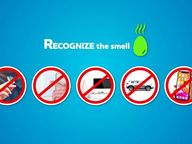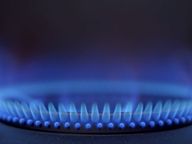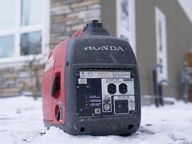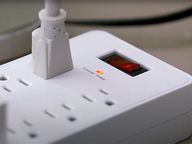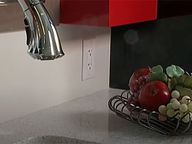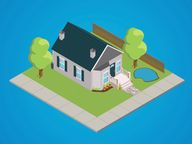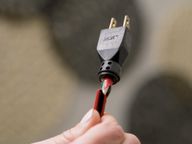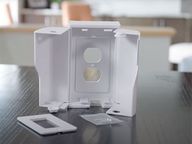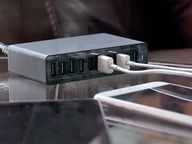Electricity and natural gas power our appliances, and heat and cool our home. Learn how to operate your equipment and appliances safely.
Natural gas service disruption
Do you know what to do if you smell natural gas?
Over half of all homes in Manitoba are heated with natural gas — and although leaks are rare, they can be dangerous. Watch to learn what to look for and how to deal with a natural gas leak.
Smart Ideas: Natural gas safety
“If you smell gas, act fast.” How do you identify a natural gas leak and what’s the procedure if you do? Watch this video to find out.
When natural gas service is disrupted, we relight crucial customers like hospitals and senior centres first, and then all other customers.
In the event of a natural gas incident, we work closely with local emergency responders. It may involve temporary evacuations or street closures to keep you safe until we stop the leak. Repairs may involve excavating.
Although rare, a natural gas outage can happen anytime. Disruptions are usually short-lived but complex repairs to a gate station (where natural gas pressure is reduced and distributed) or pipeline may mean your service will be out for several hours.
What to do during natural gas outage
- Do not use portable fuel-burning equipment inside your home or garage. This includes portable generator, patio heaters, barbecue, camping stove, propane or kerosene heaters.
- Natural gas furnaces and appliances do not have to be turned off. They should operate normally when the power is restored.
- Ensure wood-burning fireplaces and stoves are properly ventilated, and there is no risk of carbon monoxide (CO) poisoning.
If your natural gas service goes out in cold weather:
- Turn the thermostat down.
- Put on extra clothing layers.
- Close blinds and drapes and avoid opening doors to conserve the heat in your home.
- Use an electric heater (if electrical power is still on) to maintain heat in one main living room.
- Leave cold water dripping from faucets if pipes are in danger of freezing.
To safely restore natural gas service, we must shut off the gas supply to every customer in the area served by the damaged pipeline. We do not need to enter homes or businesses to do this.
- Install CO alarms with a battery backup on each level of your home.
- If you smell natural gas inside or outside your home.
- Be prepared for a power outage.
Keep your natural gas meter clear
Snow and ice on your natural gas meter can create a build-up on the regulator. This can block the vent and allow excess gas pressure into your home, or put stress on the meter piping and cause a gas leak.
Furnace and appliances
Clean your natural gas appliances and heating system regularly and service them annually.
- Ensure proper air circulation around your furnace, pipes, and appliances by keeping the area clutter-free.
- Know where to find the shut-off valve for each appliance and how to use it.
- Never use or store gasoline, flammable vapours or liquids, or combustible materials near your natural gas furnace or water heater.
- Check the flame of all natural gas appliances regularly – it should be blue. A yellow flame may be a sign of carbon monoxide (CO).
Smart Ideas: Carbon monoxide
What is carbon monoxide and how can you prevent this silent killer? Watch this video to learn how to protect yourself and your family.
Surge protection and GFCIs
A surge suppressor limits the amount of electricity during a power surge and may protect your electrical devices. A licensed electrician can install a surge suppressor at your main service panel. Add point-of-use surge suppressors such as power bars or plug-in types as well.
- A surge suppressor will not protect your equipment from a direct lightning strike.
- Unplug your computer if you are not going to use it over an extended period.
Smart Ideas: Surge protection
Learn how point-of-use surge protectors and a main service surge protector can help protect your valuable electronics.
A ground fault circuit interrupter (GFCI) cuts off power to an appliance if a loss of current is detected. Install GFCI outlets where electric appliances may come into contact with water (for example, bathrooms, kitchens, patios).
- GFCIs are required by code in new homes but can be installed in older homes.
- Lightning and power surges can damage a GFCI’s circuitry.
- Follow manufacturer’s instructions and test GFCI outlets monthly.
Smart Ideas: GFCIs
A GFCI can prevent electrical shocks or injury. Learn how to test your GFCI to ensure it works properly.
Extension cords and outlets
Overloaded outlets and damaged extension cords can cause electrical fires. Extension cords should be used only as a temporary connection. If permanent wiring is required, have a licensed electrician install more outlets.
- Childproof your electrical outlets if young children are in your home.
- Do not plug more than 1 major appliance into an outlet.
- Keep outdoor wall receptacle covers closed when not in use.
- Do not handle a cord in the rain or if you are barefoot on a wet surface.
- Keep the cord fully extended while in use to avoid overheating.
- Do not link cords together — use a cord long enough for the job.
- If outdoors, use an extension cord designed for outdoor use.
- Do not run a cord under a rug.
- Always use grounded 3-pronged cord and never remove the grounding pin from the plug.
Electrical safety around the house
Watch this video to learn how to prevent electrical shock or fire in your home.
Smart Ideas: Electrical safety
Are your appliances, extension cords, and outlets safe from fire hazards? Watch this video to learn how you can prevent electrical fires — and how to handle one if it happens.
Smart Ideas: Child safety
Learn how to keep your child safe from potential electrical hazards in your home.
Smart Ideas: Charging devices
Always use chargers specifically designed for your electronics. Learn how to charge your devices safely.
Electric tools
Keep your work area dry. Dampness and electricity can give you a fatal shock. Use a double-insulated power tool or a ground-fault circuit interrupter (GFCI) to reduce the risk of shock.
- Turn off the tool before you handle its plug to avoid accidental start-ups.
- Plug a power tool with a grounded cord cap into a grounded outlet.
- Unplug a power tool that has fallen into water before you touch it.
Blocked sewers

Natural gas lines may intersect with sewer service lines outside your home or business. These intersections are called cross bores. Damage to the cross bore can result in a natural gas leak, fire, or explosion.
The sewer must be inspected before you attempt to clear it with rotating equipment or water jets. Even if your home does not use natural gas, pipelines can be nearby. If the inspector does not find any evidence of a cross bore, they will tell you to proceed.
Call us at 204-480-1212 (Winnipeg) or 1-888-624-9376 (toll-free) to arrange for a free inspection.
If there is a chance of a cross bore we will correct the situation so the sewer clearing can be completed safely.
You do not need to call if you or your plumber are:
- fixing the problem within the walls of the building;
- doing a video inspection to check if there is a cross bore;
- attempting to clear a blockage with plungers or push rods.

